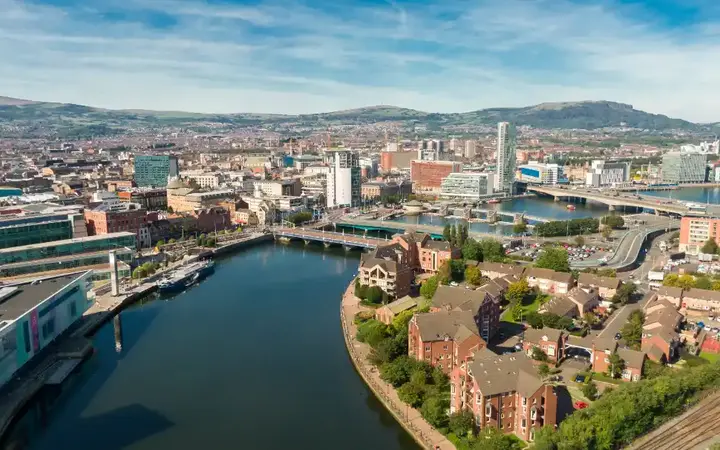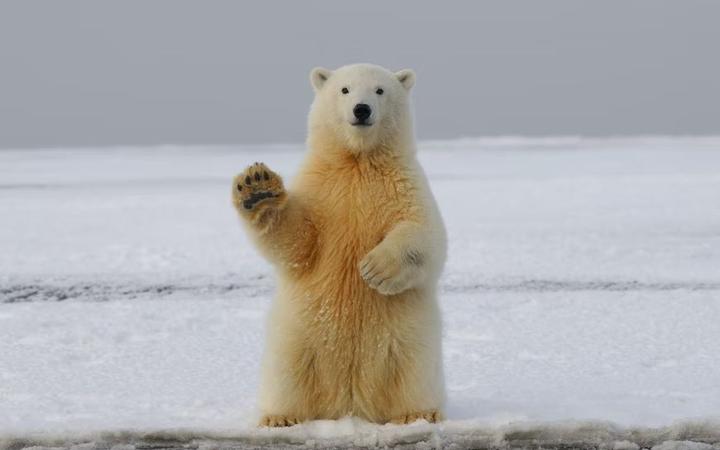A good leader knows he doesn't know everything: lessons my old sergeant didn't learn
Leadership has long been the cornerstone of success in any organization. However, many leaders, like my old boss, often fall into the trap of believing that they need to know all the answers. In fact, more effective leaders realize that they don't know everything and can't. This humility and openness to learning is what distinguishes great leaders from the rest. Understanding how leadership evolves, its importance in organizations, and new trends can help contemporary leaders navigate the complex and ever-changing business environment.
Show key points
- Leadership is fundamentally about influencing others toward a shared vision while fostering a supportive and collaborative environment.
- Over time, leadership has shifted from top-down authority to more inclusive and adaptive models like transformational and service leadership.
- Effective leaders play a crucial role in shaping organizational culture, driving engagement, and encouraging innovation by acknowledging their own limitations.
- ADVERTISEMENT
- Traditional leadership emphasized authority, control, and expertise, but these qualities alone are now inadequate in modern organizational contexts.
- The evolving landscape of leadership demands emotional intelligence, adaptability, and a commitment to inclusion and continuous learning.
- Conducting a SWOT analysis on leadership reveals that strengths like inspiring vision must be balanced against weaknesses such as inflexibility and overconfidence.
- Future leaders will thrive by serving their teams, embracing diversity of thought, and leading with humility and openness to change.
1. Define the concept of leadership.

Leadership, at its core, is the ability to influence others and direct them toward a common goal or vision. It involves decision-making, communication and fostering a positive environment where individuals can thrive. However, the idea that leaders should always be the most knowledgeable or have all the solutions is an outdated view. True leadership is about empowering others to contribute their knowledge and experience, and collaborate towards a more successful outcome.
Recommend
2. The development of leadership.

Traditionally, leadership was seen through the lens of power and authority. Commanders were expected to give all answers, issue directions, and maintain control. As organizations became increasingly complex, the limits of this authoritarian style became clear. Over time, leadership has evolved toward more collaborative models, such as service leadership, transformational leadership, and situational leadership. In these modern frameworks, a leader is a facilitator rather than a dictator, appreciating the input of his team and understanding that collective knowledge often transcends individual experience.
3. The importance of leadership in organizations.
The role of leadership in organizations is crucial. Leaders set the tone for culture, lead vision, and influence employee engagement and morale. A strong leader, who realizes the limits of his own knowledge, is likely to foster a culture of creativity, critical thinking, and continuous improvement. Conversely, leaders who believe having all the answers risk stifling creativity and creating a toxic environment where employees feel unappreciated or afraid to speak.
4. Traditional requirements for a good leader.
Historically, a good leader was expected to have qualities such as:
A. Authority and decision-making: The ability to make quick and confident decisions.
B. Knowledge: Experience is often seen as non-negotiable.
c. Control and Leadership: Ability to manage, direct, and discipline teams.
d. Vision: Having a clear direction for the future.
These traits were often associated with leaders in military and government jobs and structures and in large corporations, where top-down approaches were popular. However, as environments and organizational structures have shifted, these traditional views have proven inadequate.
5. The changing environment of leadership in organizations.
Modern organizations face challenges such as rapid technological change, globalization, and a highly diverse workforce. These changes require a new type of leadership that is more flexible, inclusive, and emotionally intelligent. Today's leaders must navigate remote work environments, engage with multicultural teams, and increasingly focus on sustainability and social responsibility.
In this evolving context, the ability to acknowledge gaps in knowledge, seek advice, and collaborate effectively is far more valuable than self-perception as the only source of expertise. The best leaders understand that the collective intelligence of their team is a much more powerful resource than the knowledge base that any individual alone has.
6. Analyze the strengths, weaknesses, opportunities and threats of the leader.

Conducting an analysis of leadership strengths, weaknesses, opportunities and threats provides insight into the changing expectations and pressures of modern leadership roles:
Strengths:
Strong decision-making skills,
Clear vision and specific direction,
The ability to inspire and motivate others.
Vulnerabilities:
overreliance on personal knowledge,
Lack of humility in admitting errors or gaps in knowledge,
Potential resistance to change.
Opportunities:
Adopt a collaborative leadership style,
Leverage technology to enhance decision-making,
Build diverse and inclusive teams that offer multiple perspectives.
•Threats:
Lagging behind in fast-paced, technology-driven industries/
Alienate employees by maintaining rigid and authoritarian leadership styles,
Increase competition that requires adaptive leadership,
7. New directions and directions for a good and successful leader.

Tomorrow's leaders need to be adaptable, empathetic, and collaborative, and the new trends shaping leadership today include:
A. Emotional Intelligence EQ: Leaders must understand and manage their own emotions while in harmony with the emotions of their team. This is critical to building trust and promoting open communication.
B. Lifelong Learning: Continuing professional development is essential, as no leader can afford to be consistent in their knowledge. Leaders who embrace learning – both formal and informal – are better equipped to navigate complex challenges.
c. Inclusion and Diversity: Successful leaders actively seek diverse perspectives and create environments where all voices are heard. This fosters innovation and problem-solving from multiple angles.
d. Adaptability: In an era of constant change, leaders must be flexible and willing to transform quickly. Whether it's new technologies or changing market conditions, adaptability is key.
C. Service leadership: Simply put, the idea of serving the team rather than directing it has gained momentum. Leaders who prioritize the needs of their employees and facilitate their development tend to build more loyal, engaged, and high-performing teams.
The bottom line.
The belief that a leader should know everything is not only obsolete, but unproductive in today's rapidly evolving world. The most effective leaders are those who recognize their own limits, value their team's expertise, and foster an environment in which collaboration thrives. My old boss, like many people in traditional leadership roles, could have benefited from this perspective. As companies continue to change and adapt, leadership must also benefit, evolving into a role that prioritizes humility, learning, and shared success over the illusion of knowing everything.
![]()
How to reduce risk and keep your business stable?
Effective risk management helps protect your business assets, improve decision-making, and avoid costly disruptions. By identifying, assessing, and addressing potential risks, you can ensure smoother operations and even uncover new opportunities. Regular updates, employee involvement, and proper tools can keep your risk strategy strong and your business steady. more- ADVERTISEMENT
![]()
Is the universe still making new galaxies?
Is the universe still making new galaxies? more- ADVERTISEMENT
![]()
Time travel through remote Lewis Island in Scotland
Time Travel Through Scotland’s Remote Isle of Lewis more- ADVERTISEMENT
![]()
The real signs of a very intelligent person
True Signs of a Highly Intelligent Person more- ADVERTISEMENT
![]()
Explore the magic of Belfast: from ship history to contemporary art culture
Belfast blends rich shipbuilding history with vibrant culture, stunning modern architecture, and lively arts. From Titanic’s legacy to music festivals and scenic parks, the city offers unforgettable experiences. Stroll markets, enjoy local dishes, and soak in the warmth of a place where tradition meets creativity. more- ADVERTISEMENT
![]()
6 Things Expats Wish They Knew Before Moving to Hong Kong
Hong Kong’s street food scene is full of delicious surprises—think egg pancakes, wonton pasta, and authentic fish balls at wallet-friendly prices. If you’re feeling fancy, don’t miss the city’s Michelin-starred dim sum spots. more- ADVERTISEMENT
![]()
The historic citadel of Aleppo ... One of the largest and oldest castles in the world
Aleppo Citadel, one of the world’s oldest castles, stands proudly in Syria’s ancient city. Once a temple and fortress, it saw civilizations from Greeks to Ottomans. Its restored Mamluk throne hall, with marble and basalt details, remains a key highlight, offering insight into the citadel’s rich and layered history. more- ADVERTISEMENT
![]()
A book that may interest you - don't be too nice
A book that might interest you - Too Nice for Your Own Good more- ADVERTISEMENT
![]()
Dar Al-Hajar ... The seven-story stone palace in Wadi Dhahr, Yemen
Perched atop a massive rock near Sana'a, the Stone Palace blends seamlessly into the mountain, appearing ancient though built in the 1930s. Once a royal summer retreat, it's now a museum showcasing Yemen’s rich architecture, with its war-castle design, gardens, and maze-like interior captivating all who visit—or admire from afar. more- ADVERTISEMENT
![]()
Polar bears and climate change: the threatened future of Arctic icons
Polar bears, majestic symbols of the Arctic, face a deeply troubling future as climate change melts their icy habitat, disrupts their food sources, and puts pregnant females at greater risk. With shrinking ice and rising temperatures, their survival grows harder, making urgent global action vital to protect these stunning creatures. more- ADVERTISEMENT





















